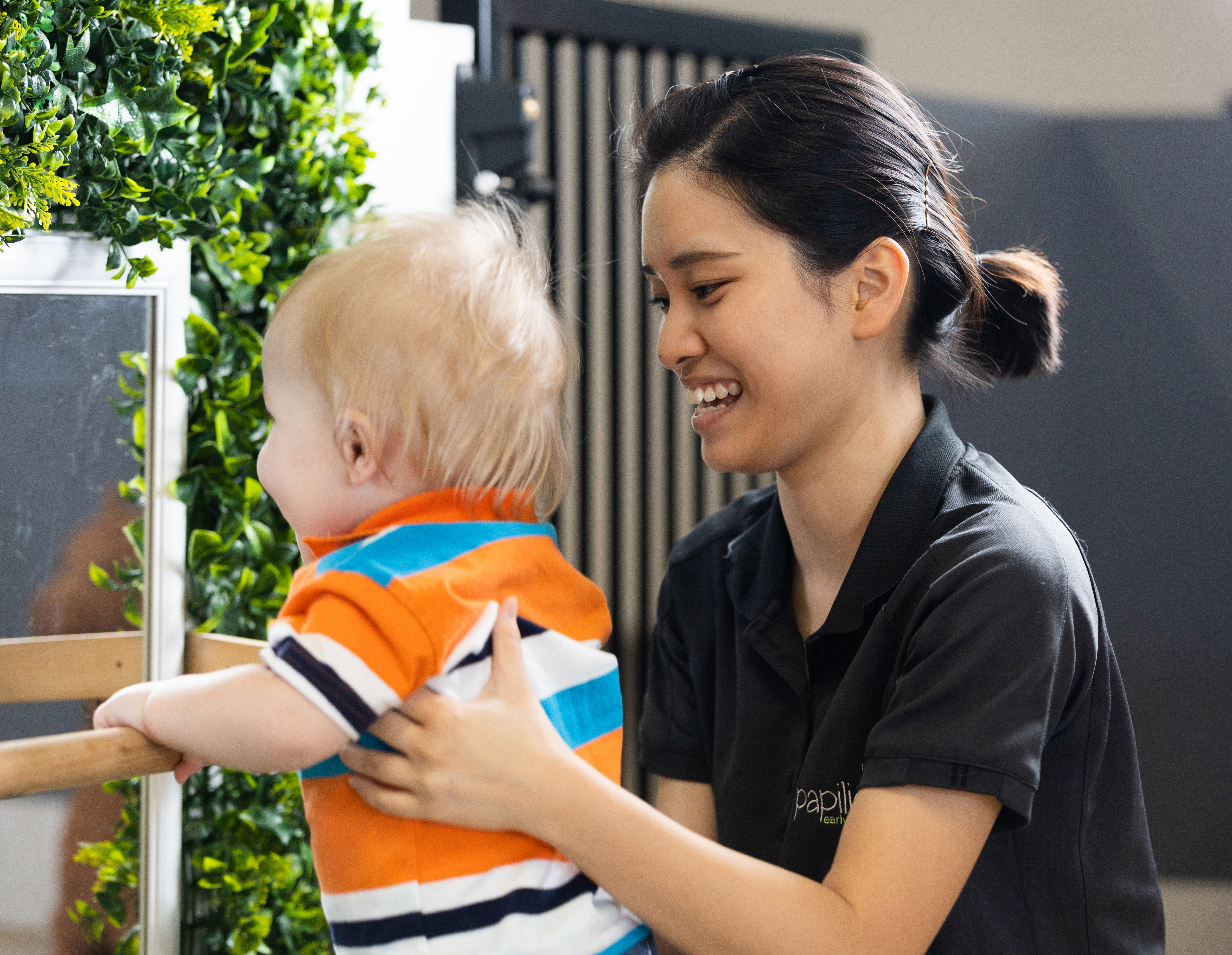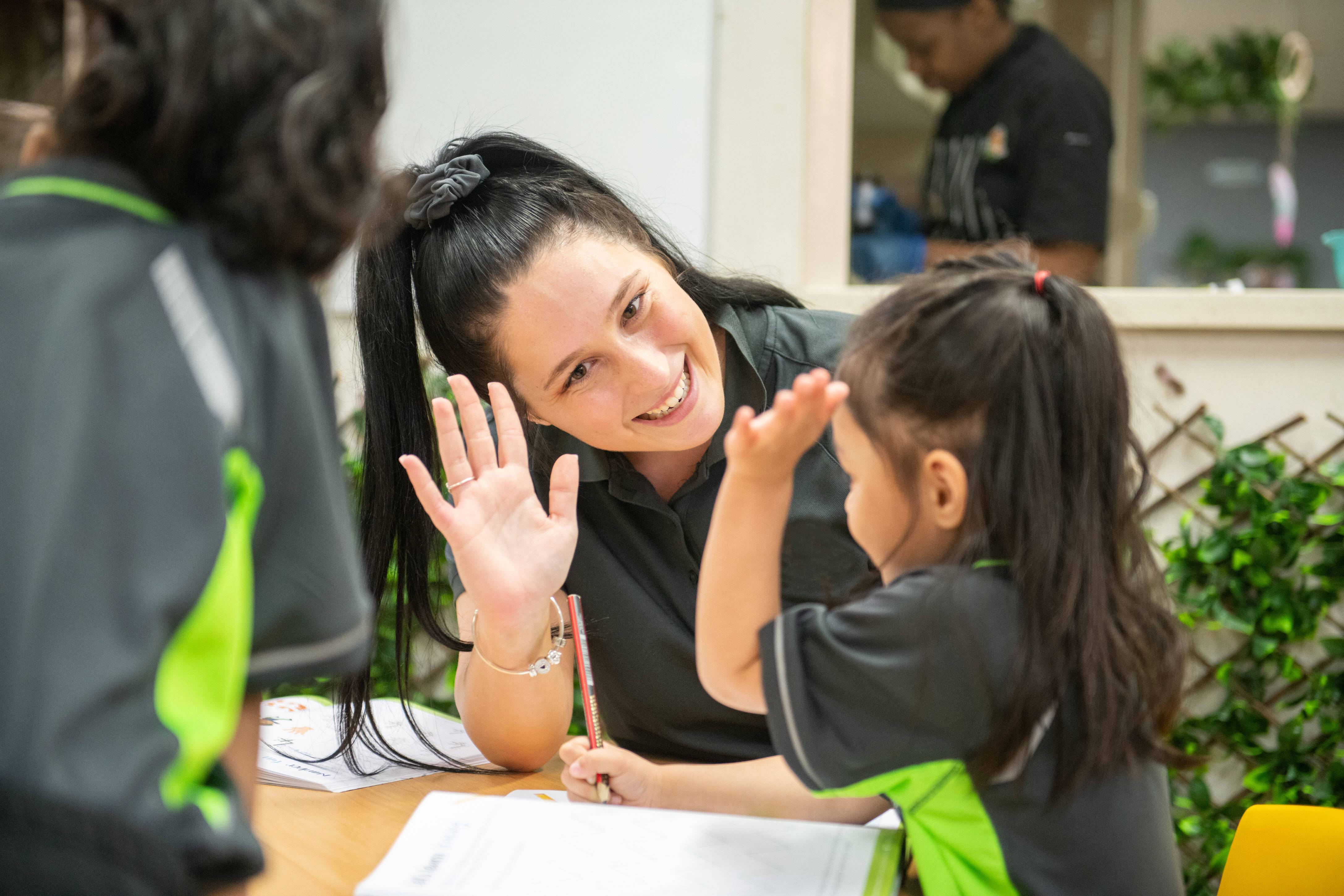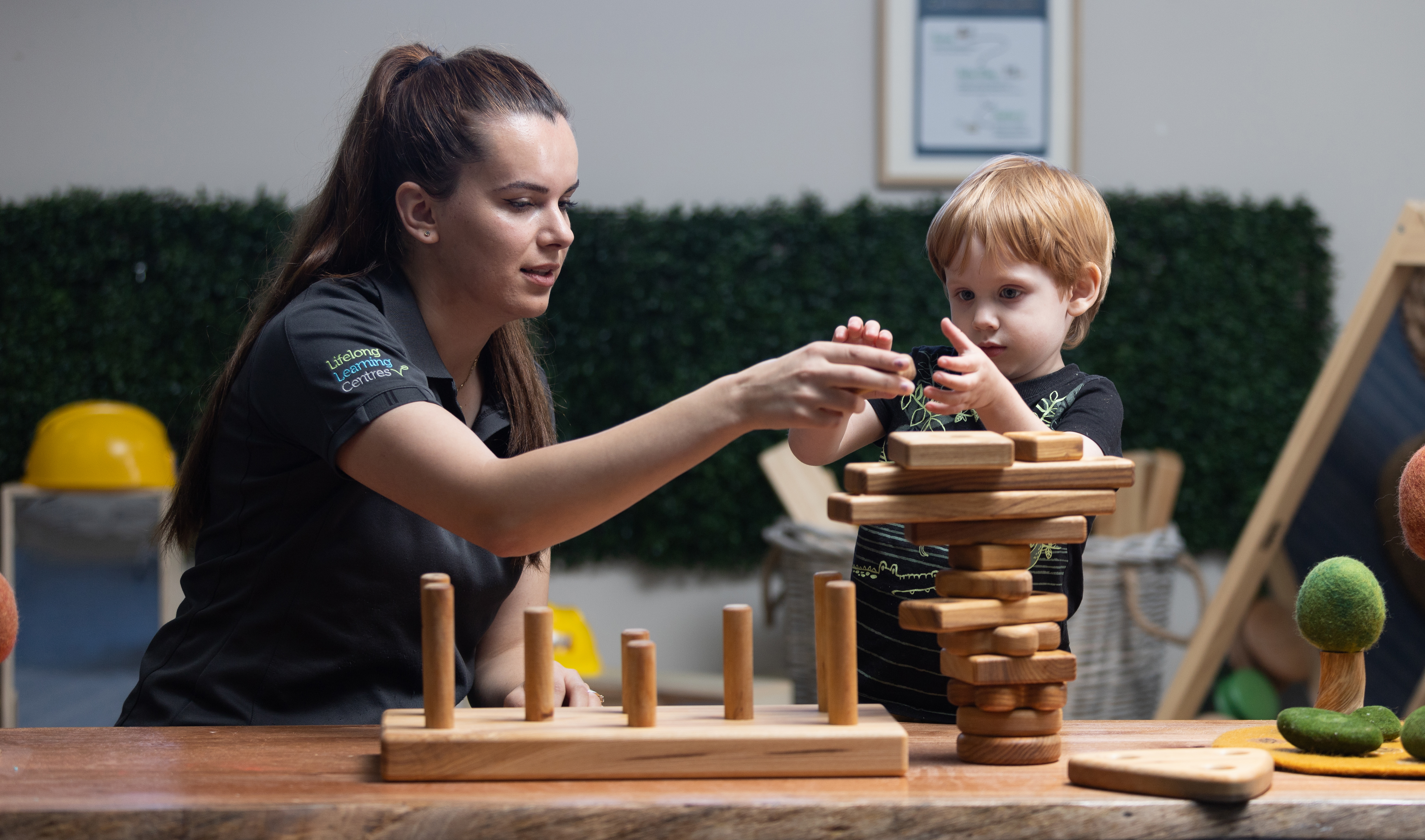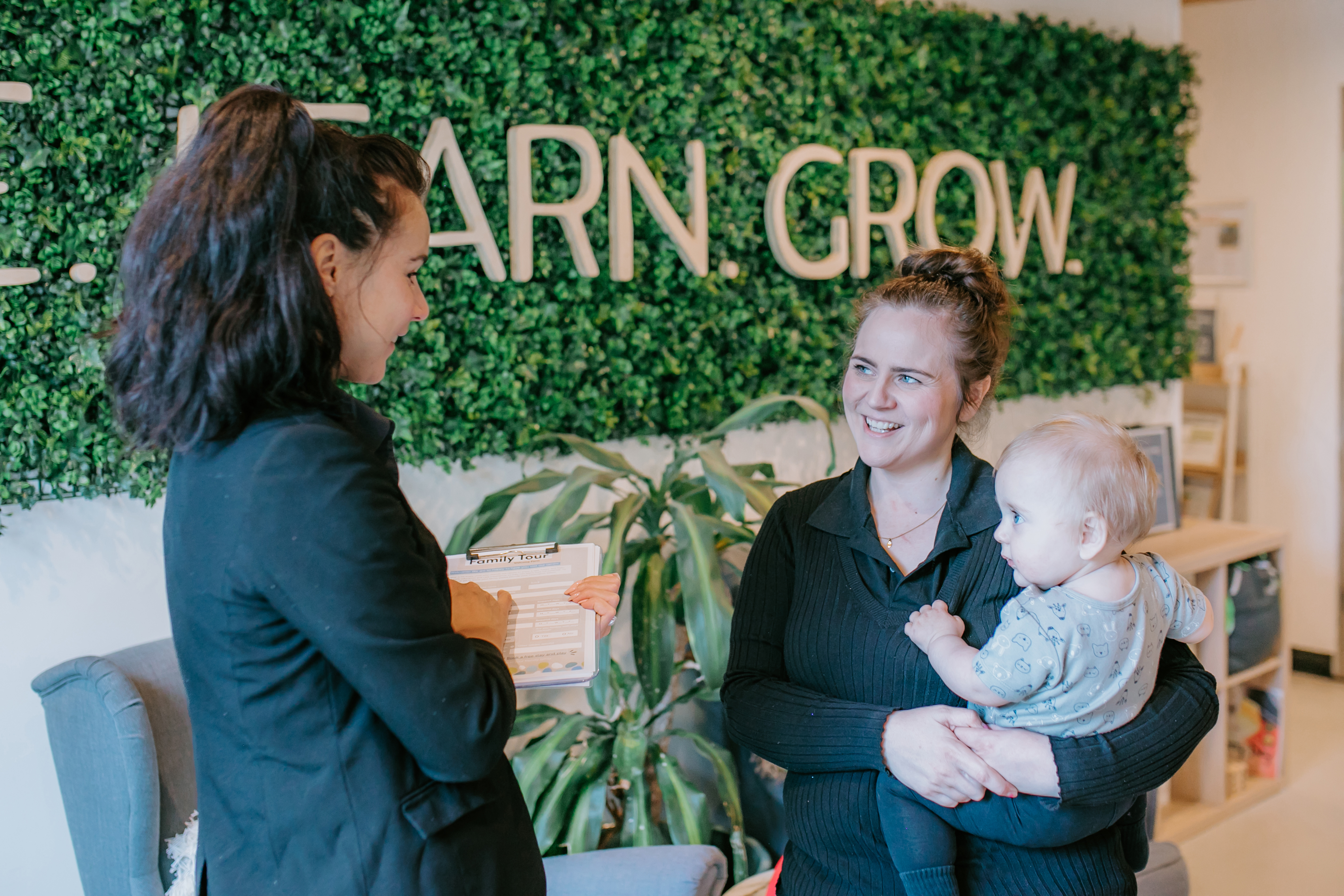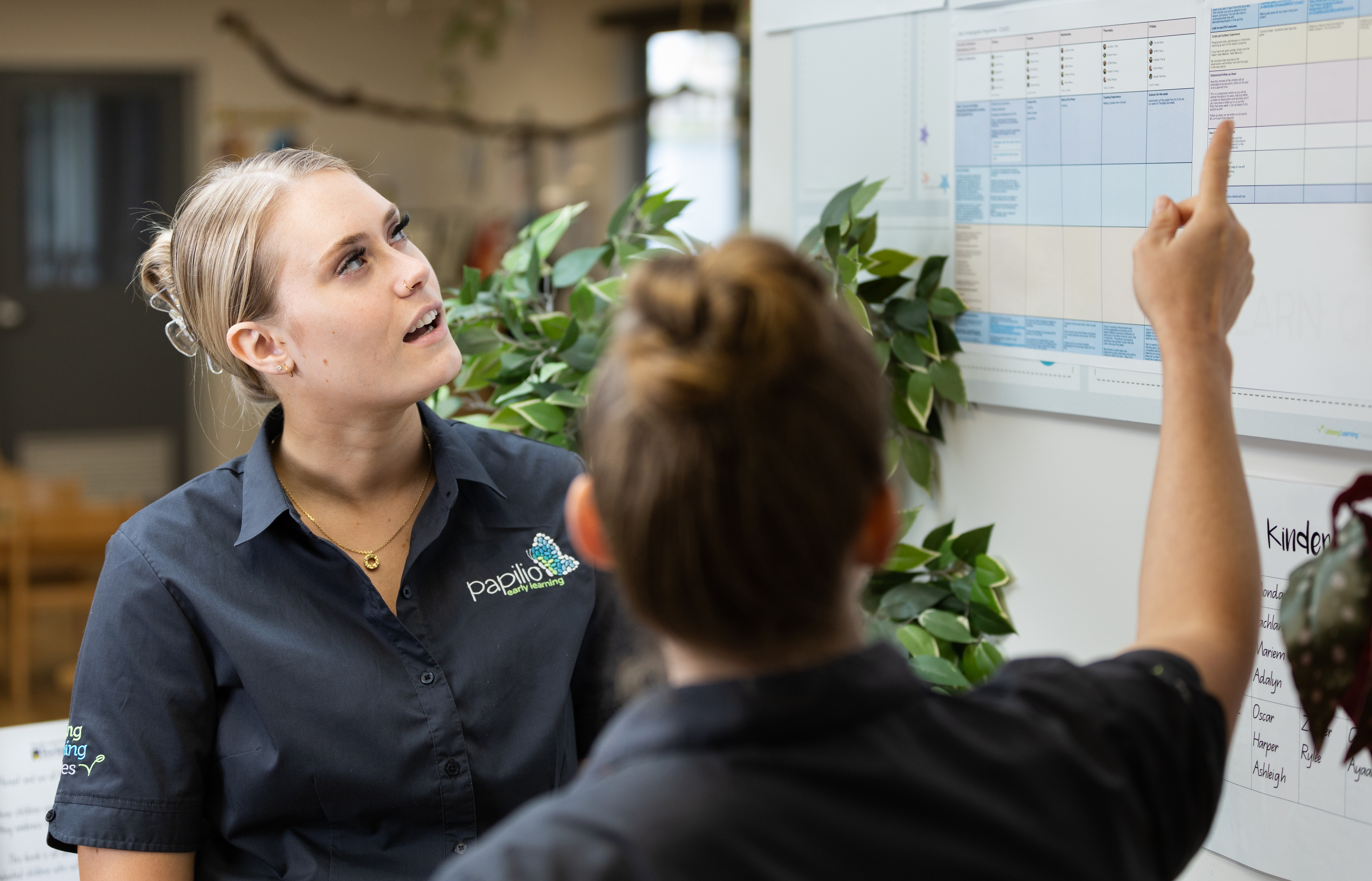Welcome to Papilio Early Learning! We provide high quality early education and care for children aged 6 weeks to 5 years in a safe, nurturing and fun environment.
Our team of educators and teachers at Papilio Early Learning are specially trained in our unique Lifelong Learning Curriculum. The Lifelong Learning Curriculum is Australia’s most progressive approach to early education for children. Our Lifelong Learning Curriculum draws on current research, evidence informed practices and specific age group programs such as The Circle of Security in our babies’ rooms, Abecedarian Language Priority for our Toddlers and Inquiry Based Learning Projects for Kindergarten children.
Our Early Learning Centre has a range of inspiring environments for children to explore, including spacious outdoor play areas that encourage children to test their limits, build strength, and develop self-confidence. We also offer a range of incursions, focused on fitness and health, animals and nature, and the larger community. We provide fresh and nutritious meals for the children each day.
Our indoor and outdoor environments are carefully designed to nurture each child's growth and inspire a lifelong love for learning. Our dedication to excellence shines through in every aspect, from our curriculum delivery to our unwavering commitment to providing safe, high-quality services.
For families, the centre provides full transparency including real time updates and communication via the Storypark App. This ongoing partnership promotes continuity of learning and is important to help children make a smooth transition to primary school.
We welcome new families to call and learn more about our unique Curriculum or visit our website to book a tour or join our waitlist.
